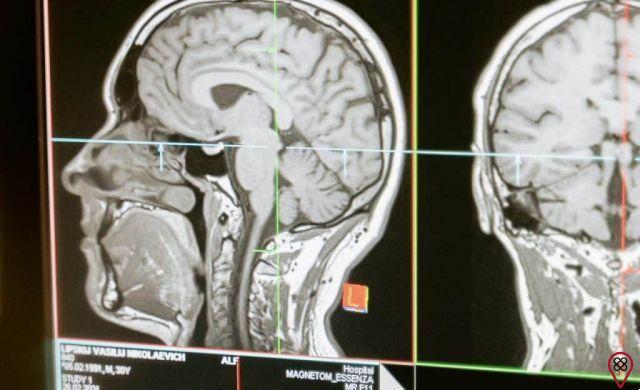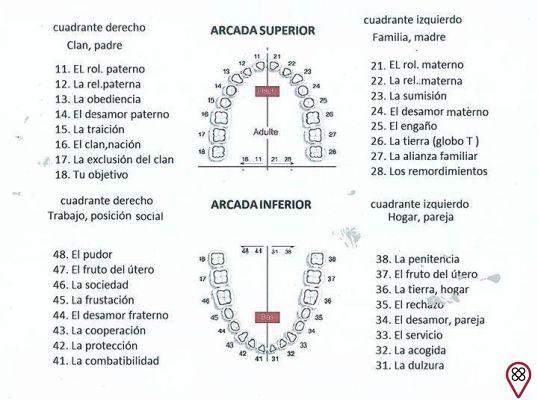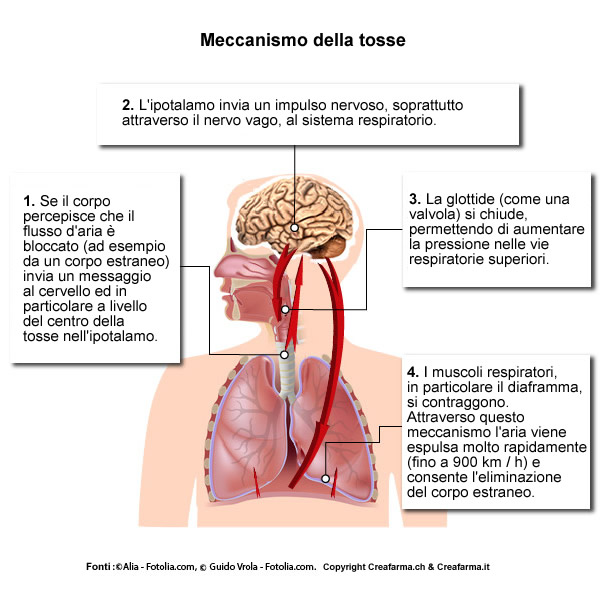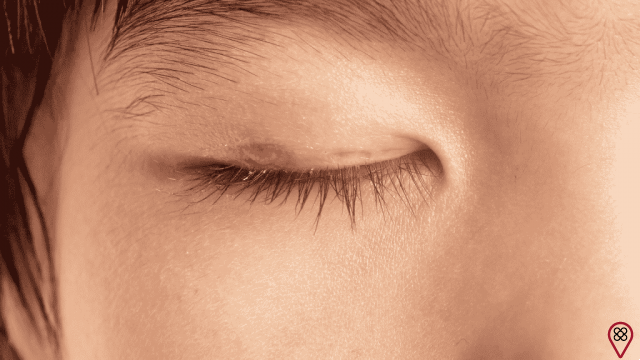Labyrinthitis is the popular name for a disease that affects the labyrinth - a structure located in the ear - and that can compromise a person's hearing and balance. In fact, the correct name for such a disorder is labyrinthopathy, as labyrinthitis is just one of the problems in the same region.
A patient suffering from labyrinthitis has certain areas of the ears inflamed, so they end up sending false alerts to the brain, as if the body is moving, even if it is still at rest. From this, the vision does not recognize the movement signal sent and ends up causing a confusion between what the brain received and the decrease in balance.
It is still not known for sure what causes labyrinthitis, but inflammation and infections such as otitis and even colds can trigger crises of this disease, as well as neurological problems, allergies, use of certain medications, among others.
What is labyrinthitis?
Inside a person's ears, there is a complex structure that is part of the hearing and balance systems. It is thanks to her that we are able to move easily and that we hear everything around us. The name given to a part of this structure is labyrinth. When there is inflammation in this region of the ear, labyrinthitis manifests itself.
This inflammation can develop from a cold, the flu, or an infection. As a result, an individual's listening and balancing abilities will be affected. So, he may feel dizzy, sick and hear a persistent tinnitus, but only a healthcare professional can diagnose the condition.
Labyrinthitis and body language
Analyzing labyrinthitis from a more emotional and psychological point of view, Cristina Cairo states that the disease means the disorder of repressed thoughts and feelings. The psychologist points out that people who need freedom, who feel alone, who find it difficult to express themselves and who insist on looking to the past instead of focusing on the present tend to suffer from labyrinthitis crises.
The repression of so many emotions generates dizziness and blurry vision, as if our emotional side was reflected in our physical, emphasizing the need to see certain situations with clarity and lightness. Cristina still claims that repressing fears causes panic. An individual suffering from labyrinthitis needs to free himself from everything that suffocates him and put his feelings first.
Symptoms of labyrinthitis
The most common symptoms of labyrinthitis are: vertigo, strong or weak dizziness, loss of balance, feeling that everything is spinning and feeling light-headed or dizzy. But there are others that can characterize this disorder, check out:
- Ringing in the ear;
- Nausea;
- Sweating;
- Sensation of stuffiness in the ear;
- Loss of hair;
- Hearing loss or impairment.
Symptoms appear between three to four days after the patient's ear areas become inflamed and can last for seconds, minutes, hours… It all depends on what caused the inflammation and what treatment is given.

What is good for labyrinthitis?
Anyone who suffers from labyrinthitis knows how uncomfortable their symptoms are, but there are a few tricks that can come in handy during a flare-up:
— Try to remain calm and fix your eyes on some object. As vision composes our balance, it can help to reduce the crisis;
— Avoid very fast movements, remain still and ask for help to walk, if necessary;
— Reduce the consumption of processed foods, as the preservatives and dyes contained in their formulas can worsen or trigger new crises;
— Drink plenty of water and eat a balanced diet;
— Sleep well and stay away from any stressful situation;
— Essential: Never drive when feeling dizzy or on medication!
Teas and home remedies for labyrinthitis
If you are feeling very unwell with the symptoms of labyrinthitis and have already sought medical attention, there are some teas and home remedies that can help you to ward off this annoyance. See what they are:
1) Ginkgo biloba tea
Ginkgo biloba tea is made from a plant that stimulates blood circulation within the ear. In this way, it fights the imbalance, dizziness and tinnitus that come with labyrinthitis.
To prepare the drink, you will need 1 tablespoon of dried ginkgo biloba leaves and 1 cup of water. Then, boil the leaves for a minute, let it sit for another five minutes, and drink three to four cups a day.
2) Rosemary tea
Rosemary tea can alleviate one of the symptoms of labyrinthitis, because this plant contains neuroprotective, anti-inflammatory and antioxidant properties. The combination of these qualities is capable of reducing the sensation of dizziness.
The rosemary tea recipe is simple. You should add 1 teaspoon of fresh rosemary leaves to 250 ml of boiling water and let it boil for about 10 minutes. Once the mixture has cooled, strain and drink, three to four cups a day.
3) Ginger tea
Ginger tea works on very uncomfortable symptoms of labyrinthitis: nausea and vomiting. That's because the root has anti-inflammatory and antiemetic properties, reducing ear inflammation and calming the stomach, respectively.
To make your ginger tea, just boil 1 cm of the root of the plant cut into slices in 1 liter of water, for about 10 minutes. Once that's done, just strain the liquid and drink three to four cups a day.
4) Lavender tea
Lavender tea is another ally against the symptoms of labyrinthitis, as the plant's calming characteristics reduce the anxiety of those who are feeling dizzy or nauseated, as well as helping to relax faster.
In that case, you should prepare the tea using ½ teaspoon of lavender flowers and 1 cup of boiling water. First, boil the water and then add the flowers for about 10 minutes. Strain the mixture and drink it before bed once a day.
5) Garlic and olive oil compress
A garlic and olive oil compress is a natural remedy for labyrinthitis. These two ingredients have components that fight ear inflammation, reducing tinnitus, dizziness and loss of balance.
To prepare the compress, you will use a cotton ball, a crushed garlic clove and a drizzle of olive oil. Start by heating the two ingredients in a tablespoon. When it is warm, soak the cotton in the mixture, squeeze it and place it in the entrance of the ear, covering it for 20 minutes. Do this three times a day.
How to treat labyrinthitis?

If you have any of the symptoms described above, it is necessary to seek medical help. Consult an otolaryngologist or a general practitioner and report all your symptoms in detail, providing the specialist, including how long you have been feeling them. You'll have a battery of tests—just as the doctor might conclude his diagnosis with brief questions or a simple ear exam. Generally, tests done to diagnose labyrinthitis are:
— Electroencephalogram;
— Computed tomography of the head;
— Audiology;
— Audiometry;
— MRI of the head.
You may also like
- Decrease your body's inflammation and thus express your best version
- Learn more about your body's stories and connect
- Uncover what's behind accidents and illness
- Know what candidiasis represents through body language
After obtaining a diagnosis, the treatment indicated by the doctor begins. It is normal for labyrinthitis to simply “go away” on its own, even if it takes almost a month for all your symptoms to go away. But if the doctor has decided to take a drug treatment, know that it is specifically aimed at relieving symptoms. If your labyrinthitis was caused by bacteria, you will be prescribed antibiotics, but if it is caused by a virus, medication to reduce vomiting and feeling sick will be prescribed.
Many of our physical problems are emotional. Therefore, labyrinthitis can be a reflection of our accumulation of sensations and also of our more withdrawn position in front of life. Before anything else, take care of yourself! Worry about your health! If you have noticed that you have all the symptoms of labyrinthitis, see a doctor and report your discomforts. Don't be afraid to expose what bothers you and always seek experts who can help you!

























